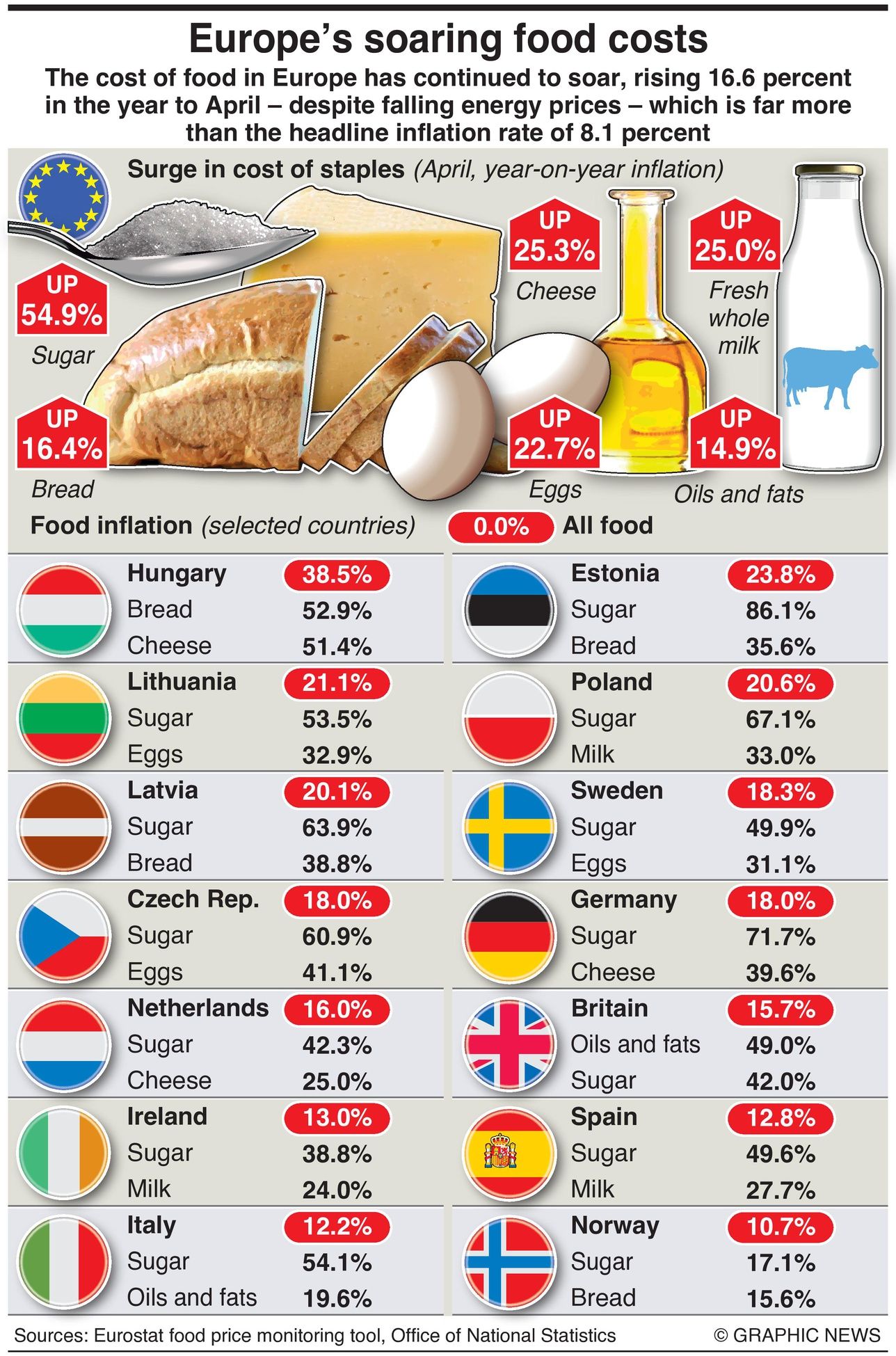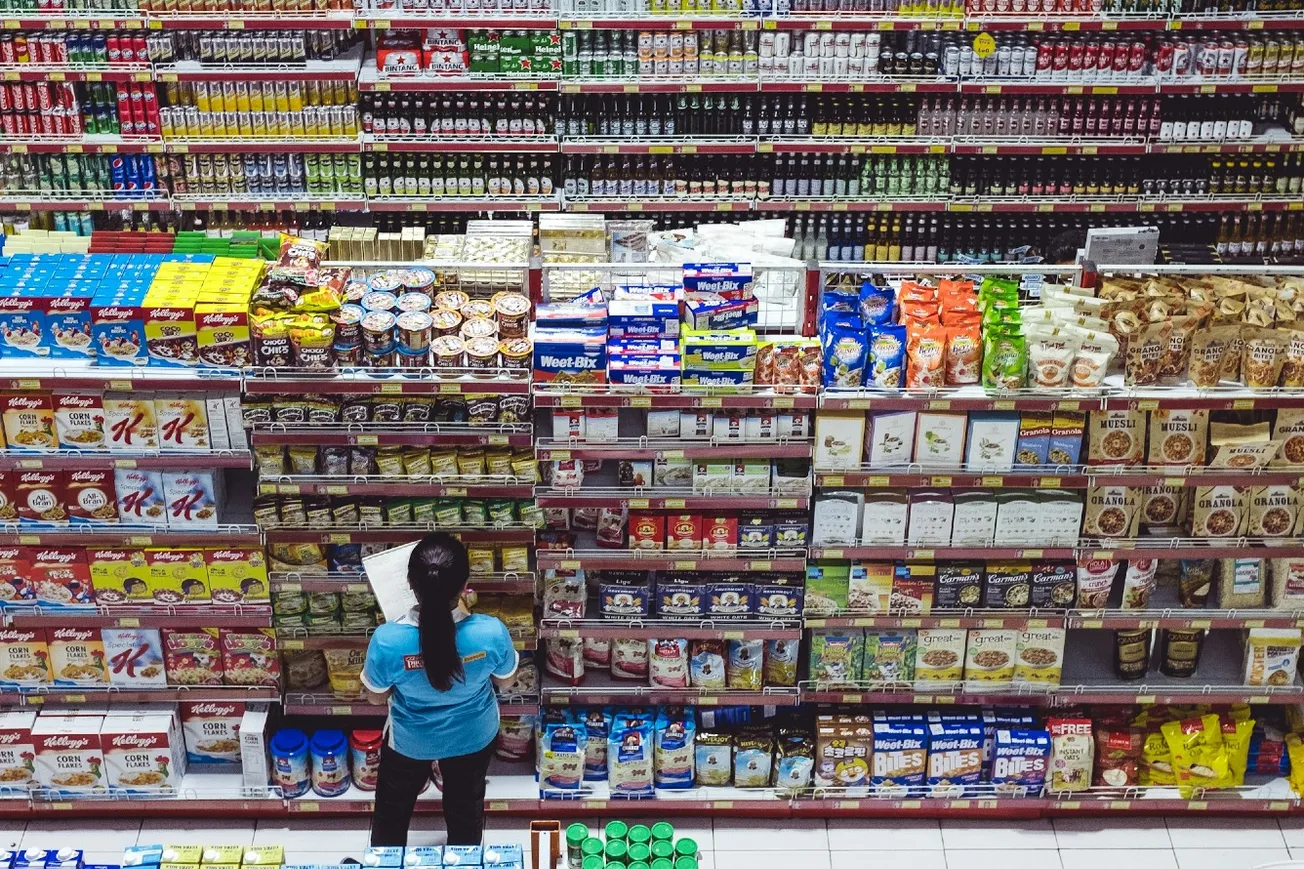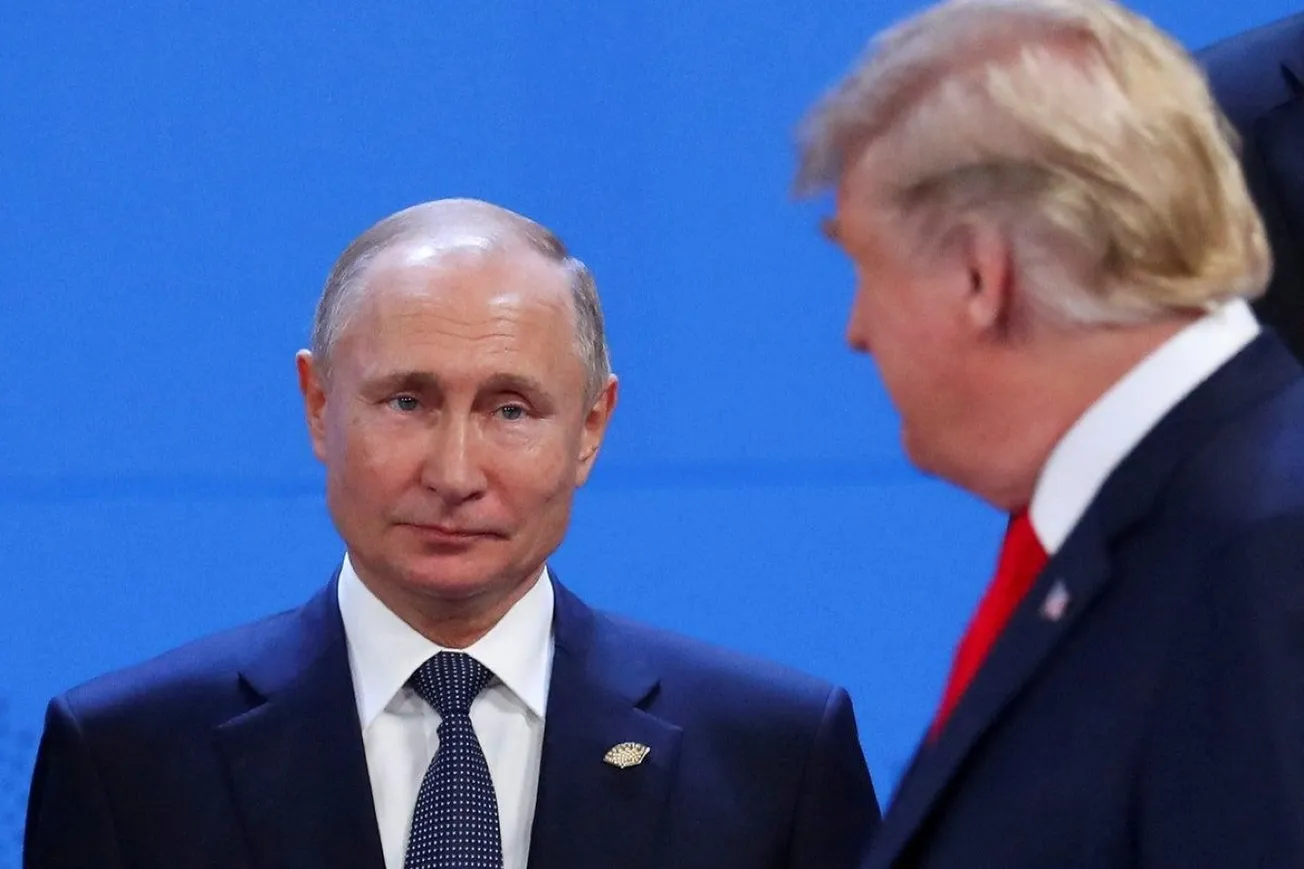The cost of food in Europe has continued to soar, rising 16.6 percent in the year to April -- despite falling energy prices -- which is far more than the headline inflation rate of 8.1 percent.

The cost of grains, vegetable oil, dairy, and other staple foods has fallen steadily from record highs on global markets. But the price-easing hasn’t reached retailers, supermarkets, and families facing a cost of living crisis.
Central and eastern European states are the hardest hit by rising prices. Hungary and Croatia have moved to cap the cost of essentials to shield the most vulnerable, who tend to spend more of their income on food.
“We haven’t had price controls in a general pattern in the Western world since the 1970s,” Lars Jonung, a Swedish economist and expert on price controls, told the Financial Times.
In Hungary, supermarkets had started limiting purchases, forcing shoppers to visit multiple stores or shop daily. In Greece, the government capped retailers’ profit margins on food sales to restrict prices.
France has negotiated a deal with supermarkets to offer a selection of items at the lowest possible price, while Spain is one of several countries to have cut value-added tax on food.
Food prices in Britain rose by 15.7% in April after a 15% rise in the year to March. Retailers deny that they are price gouging and say they have to take a loss on capped goods.









